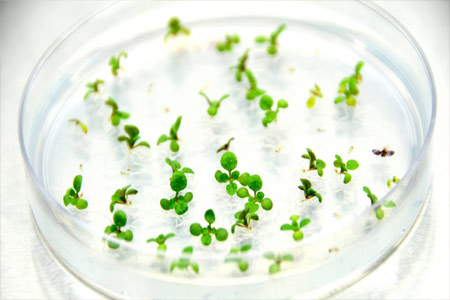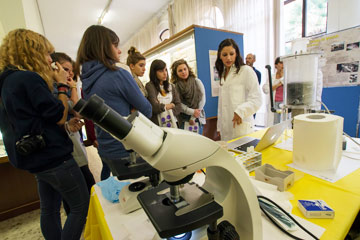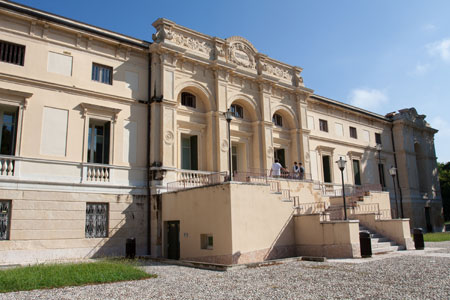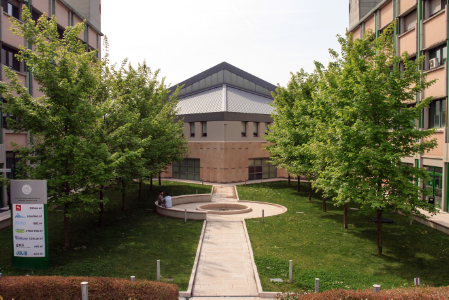|
Bachelor's degree in Biotechnology
Course partially running
|
Bioinformatics and biological databases (2025/2026)
|
6
|

|
3
|
(Mod. 2)
|
|
Bachelor's degree in Bioinformatics
Course partially running
|
Bio-information technology workshop (2025/2026)
|
12
|

|
3
|
(Mod.2 Teoria)
|
|
3
|
(Mod.2 Laboratorio)
|
|
Master's degree in Molecular and Medical Biotechnology
|
Computational Biology (2025/2026)
|
6
|

|
6
|
|
|
PhD in Molecular, Industrial and Environmental Biotechnologies
|
Innovative strategies in drug discovery: from enzyme structure-function to targeted protein degradation (2025/2026)
|
4
|
|
0.5
|
|
|
Bachelor's degree in Biotechnology
Course partially running
|
Bioinformatics and biological databases (2024/2025)
|
6
|

|
3
|
(Mod. 2)
|
|
Bachelor's degree in Bioinformatics
Course partially running
|
Bio-information technology workshop (2024/2025)
|
12
|

|
3
|
(Mod.2 Teoria)
|
|
3
|
(Mod.2 Laboratorio)
|
|
Master's degree in Molecular and Medical Biotechnology
Course partially running
|
Computational Biology (2024/2025)
|
6
|

|
6
|
|
|
Bachelor's degree in Biotechnology
Course partially running
|
Bioinformatics and biological databases (2023/2024)
|
6
|

|
3
|
(Mod. 2)
|
|
Bachelor's degree in Bioinformatics
Course partially running
|
Bio-information technology workshop (2023/2024)
|
12
|

|
3
|
(Mod.2 Teoria)
|
|
3
|
(Mod.2 Laboratorio)
|
|
Master's degree in Molecular and Medical Biotechnology
Course partially running
|
Computational Biology (2023/2024)
|
6
|

|
6
|
|
|
Bachelor's degree in Biotechnology
Course partially running
|
Bioinformatics and biological databases (2022/2023)
|
6
|

|
3
|
(Mod. 2)
|
|
Bachelor's degree in Bioinformatics
Course partially running
|
Bio-information technology workshop (2022/2023)
|
12
|

|
3
|
(Mod.2 Teoria)
|
|
2
|
(Mod.2 Laboratorio)
|
|
Master's degree in Molecular and Medical Biotechnology
Course partially running
|
Computational Biology (2022/2023)
|
6
|

|
6
|
|
|
Bachelor's degree in Biotechnology
Course partially running
|
Bioinformatics and biological databases (2021/2022)
|
6
|

|
3
|
(Mod. 2)
|
|
Bachelor's degree in Bioinformatics
Course partially running
|
Bio-information technology workshop (2021/2022)
|
12
|

|
3
|
(Mod.2 Teoria)
|
|
3
|
(Mod.2 Laboratorio)
|
|
Master's degree in Molecular and Medical Biotechnology
Course partially running
|
Computational Biology (2021/2022)
|
6
|

|
6
|
|
|
Bachelor's degree in Bioinformatics
Course partially running
|
Bio-information technology workshop (2020/2021)
|
12
|

|
3
|
(Mod.2 Laboratorio)
|
|
3
|
(Mod.2 Teoria)
|
|
Master's degree in Molecular and Medical Biotechnology
Course partially running
|
Computational Biology (2020/2021)
|
6
|

|
6
|
|
|
Master's degree in Molecular and Medical Biotechnology
Course partially running
|
Research inspired laboratory (2020/2021)
|
6
|

|
2
|
(Modulo B)
|
|
Bachelor's degree in Bioinformatics
Course partially running
|
Bio-information technology workshop (2019/2020)
|
12
|

|
3
|
(Mod.2 teoria)
|
|
3
|
(Mod.2 laboratorio)
|
|
Master's degree in Molecular and Medical Biotechnology
Course partially running
|
Computational Biology (2019/2020)
|
6
|

|
6
|
|
|
Master's degree in Molecular and Medical Biotechnology
Course partially running
|
Research inspired laboratory (2019/2020)
|
6
|

|
1
|
(b)
|
|
Bachelor's degree in Bioinformatics
Course partially running
|
Bio-information technology workshop (2018/2019)
|
12
|

|
3
|
(Mod.2 teoria)
|
|
3
|
(Mod.2 laboratorio)
|
|
Master's degree in Molecular and Medical Biotechnology
Course partially running
|
Computational Biology (2018/2019)
|
6
|

|
3
|
(Modulo 2)
|
|
3
|
(Modulo 1)
|
|
Master's degree in Molecular and Medical Biotechnology
Course partially running
|
Research inspired laboratory (2018/2019)
|
6
|

|
1
|
(b)
|
|
Bachelor's degree in Bioinformatics
Course partially running
|
Bio-information technology workshop (2017/2018)
|
12
|

|
6
|
(Modulo 2)
|
|
Master's degree in Molecular and Medical Biotechnology
Course partially running
|
Computational Biology (2017/2018)
|
6
|

|
3
|
(Modulo 2)
|
|
3
|
(Modulo 1)
|
|
Master's degree in Molecular and Medical Biotechnology
Course partially running
|
Research inspired laboratory (2017/2018)
|
6
|

|
1
|
(b)
|
|
Master's degree in Molecular and Medical Biotechnology
Course partially running
|
Computational Biology (2016/2017)
|
6
|
|
3
|
(Modulo 1)
|
|
3
|
(Modulo 2)
|
|
Bachelor's degree in Bioinformatics
Course partially running
|
Molecular biology (2016/2017)
|
12
|

|
6
|
LABORATORIO DI BIOINFORMATICA II
|
|
Master's degree in Molecular and Medical Biotechnology
Course partially running
|
Research inspired laboratory (2016/2017)
|
6
|

|
1
|
(c)
|
|
Master's degree in Molecular and Medical Biotechnology
Course partially running
|
Computational Biology (2015/2016)
|
6
|
|
6
|
|
|
Bachelor's degree in Bioinformatics
Course partially running
|
Molecular biology (2015/2016)
|
12
|
|
6
|
LABORATORIO DI BIOINFORMATICA II
|
|
Master's degree in Molecular and Medical Biotechnology
Course partially running
|
Research inspired laboratory (2015/2016)
|
6
|
|
1
|
(c)
|
|
Master's degree in Bioinformatics and Medical Biotechnology
Course not running
|
Computational biology (2014/2015)
|
6
|
|
3
|
(laboratorio)
|
|
3
|
(teoria)
|
|
Bachelor's degree in Bioinformatics
Course partially running
|
Molecular biology (2014/2015)
|
12
|
|
3
|
LABORATORIO DI BIOINFORMATICA II (Teoria)
|
|
3
|
LABORATORIO DI BIOINFORMATICA II (Laboratorio)
|
|
Master's degree in Bioinformatics and Medical Biotechnology
Course not running
|
Computational biology (2013/2014)
|
6
|
|
3
|
(laboratorio)
|
|
3
|
(teoria)
|
|
Bachelor's degree in Bioinformatics
Course partially running
|
Molecular biology (2013/2014)
|
12
|
|
3
|
LABORATORIO DI BIOINFORMATICA II (Teoria)
|
|
3
|
LABORATORIO DI BIOINFORMATICA II (Laboratorio)
|
|
Master's degree in Bioinformatics and Medical Biotechnology
Course not running
|
Computational biology (2012/2013)
|
6
|
|
3
|
(Laboratorio)
|
|
3
|
(Teoria)
|
|
Bachelor's degree in Bioinformatics
Course partially running
|
Molecular biology (2012/2013)
|
12
|
|
3
|
LABORATORIO DI BIOINFORMATICA II (Teoria)
|
|
3
|
LABORATORIO DI BIOINFORMATICA II (Laboratorio)
|
|
Master's degree in Bioinformatics and Medical Biotechnology
Course not running
|
Computational biology (2011/2012)
|
6
|
|
3
|
(Laboratorio)
|
|
3
|
(Teoria)
|
|
Bachelor's degree in Bioinformatics
Course partially running
|
Molecular biology (2011/2012)
|
12
|
|
3
|
LABORATORIO DI BIOINFORMATICA II (Laboratorio)
|
|
3
|
LABORATORIO DI BIOINFORMATICA II (Teoria)
|
|
Master's degree in Bioinformatics and Medical Biotechnology
Course not running
|
Computational biology (2010/2011)
|
6
|
|
3
|
(Laboratorio)
|
|
3
|
(Teoria)
|
|
Bachelor's degree in Bioinformatics
Course partially running
|
Molecular biology (2010/2011)
|
12
|
|
3
|
LABORATORIO DI BIOINFORMATICA II (Laboratorio)
|
|
3
|
LABORATORIO DI BIOINFORMATICA II (Teoria)
|
|
Bachelor's degree in Bioinformatics
Course partially running
|
Biochemistry (2009/2010)
|
12
|
|
3
|
LABORATORIO DI BIOINFORMATICA I (Laboratorio)
|
|
3
|
LABORATORIO DI BIOINFORMATICA I (Teoria)
|
|
Bachelor's degree in Bioinformatics
Course partially running
|
Molecular biology (2009/2010)
|
12
|
|
3
|
LABORATORIO DI BIOINFORMATICA II (Teoria)
|
|
3
|
LABORATORIO DI BIOINFORMATICA II (Laboratorio)
|
|
Masters in Agroindustrial Biotechnology
|
Bioinformatics (2008/2009)
|
3
|
|
1
|
Laboratorio
|
|
2
|
Teoria
|
|
Bachelor's degree in Bioinformatics (until 2008-2009)
Course Not running, not visible
|
Bio-information technology workshop I (2008/2009)
|
4
|
|
4
|
|
|
Bachelor's degree in Bioinformatics (until 2008-2009)
Course Not running, not visible
|
Bio-information technology workshop II (2008/2009)
|
4
|
|
4
|
|
|
Bachelor in Agroindustrial Biotechnology (until 2008-2009 academic year)
Course Not running, not visible
|
Biomolecular Databases (2008/2009)
|
3
|
|
2
|
Laboratorio
|
|
1
|
Teoria
|
|
Masters in Molecular and Industrial Biotechniques
|
Laboratory of Structural and Genomical Bioinformatics
(2008/2009)
|
4
|
|
4
|
|
|
Masters in Agroindustrial Biotechnology
|
Bioinformatics (2007/2008)
|
3
|
|
1
|
Laboratorio
|
|
2
|
Teoria
|
|
Bachelor's degree in Bioinformatics (until 2008-2009)
Course Not running, not visible
|
Bio-information technology workshop I (2007/2008)
|
4
|
|
4
|
|
|
Masters in Agroindustrial Biotechnology
|
Bioinformatics (2006/2007)
|
3
|
|
2
|
Teoria
|
|
1
|
Laboratorio
|
|
Masters in Molecular and Industrial Biotechniques
|
Laboratory of Structural and Genomical Bioinformatics
(2006/2007)
|
4
|
|
4
|
|








 giorgetti
giorgetti univr
univr

